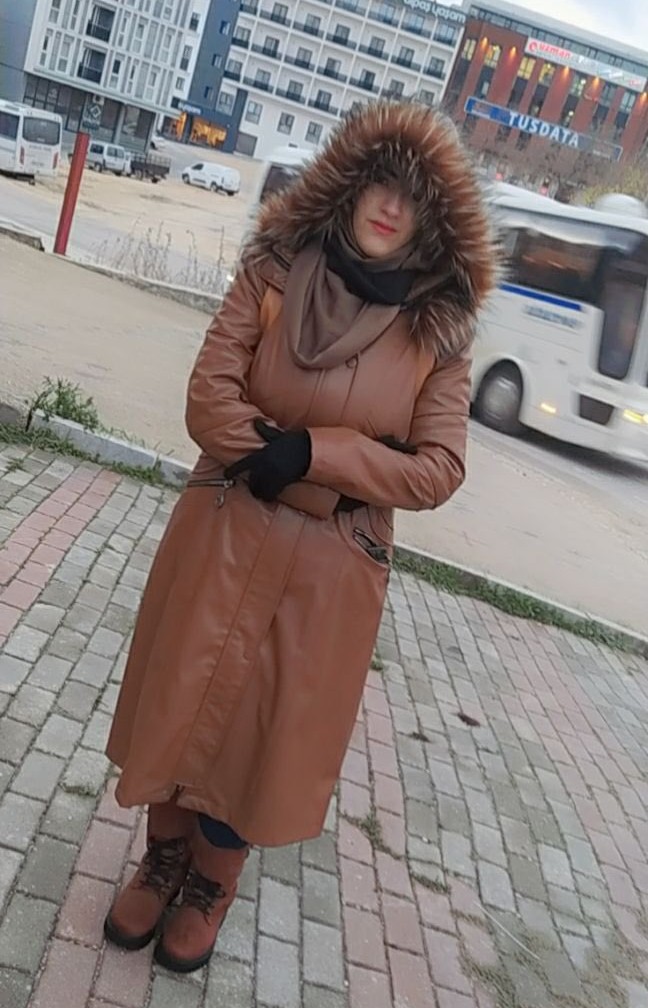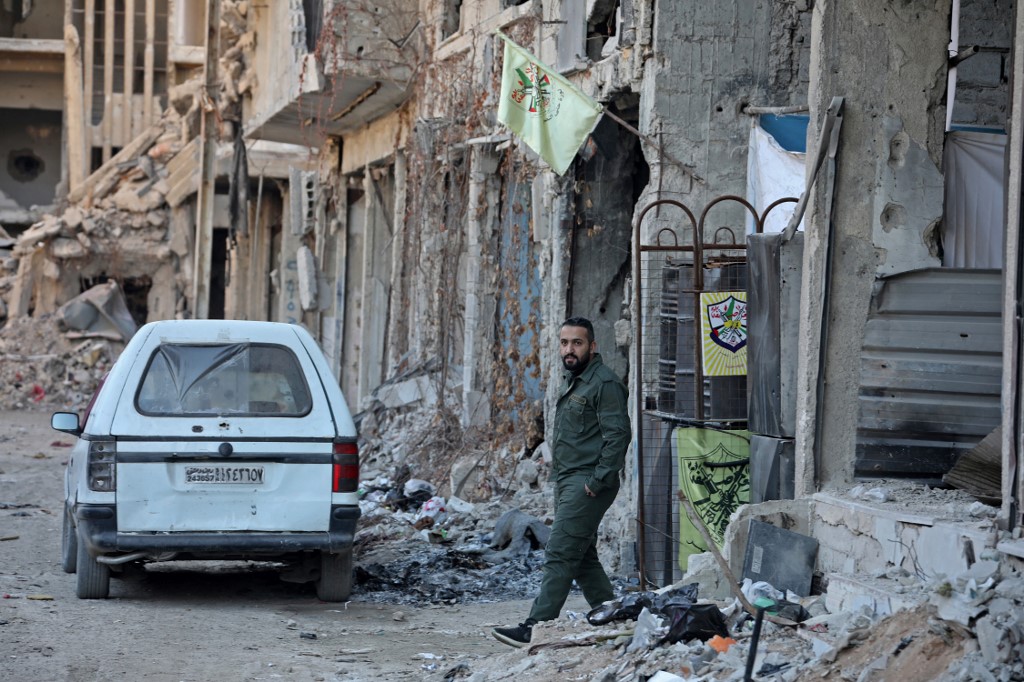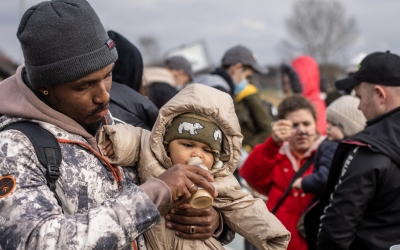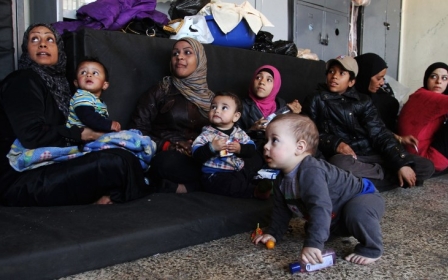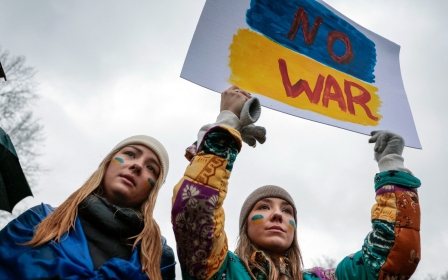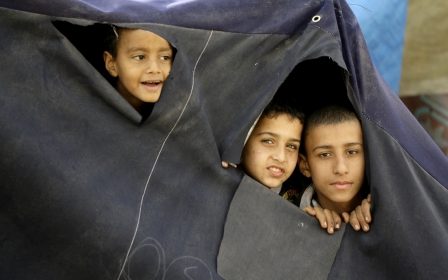Refugee crisis: How one girl's death personifies Europe's guilt in Mediterranean tragedy
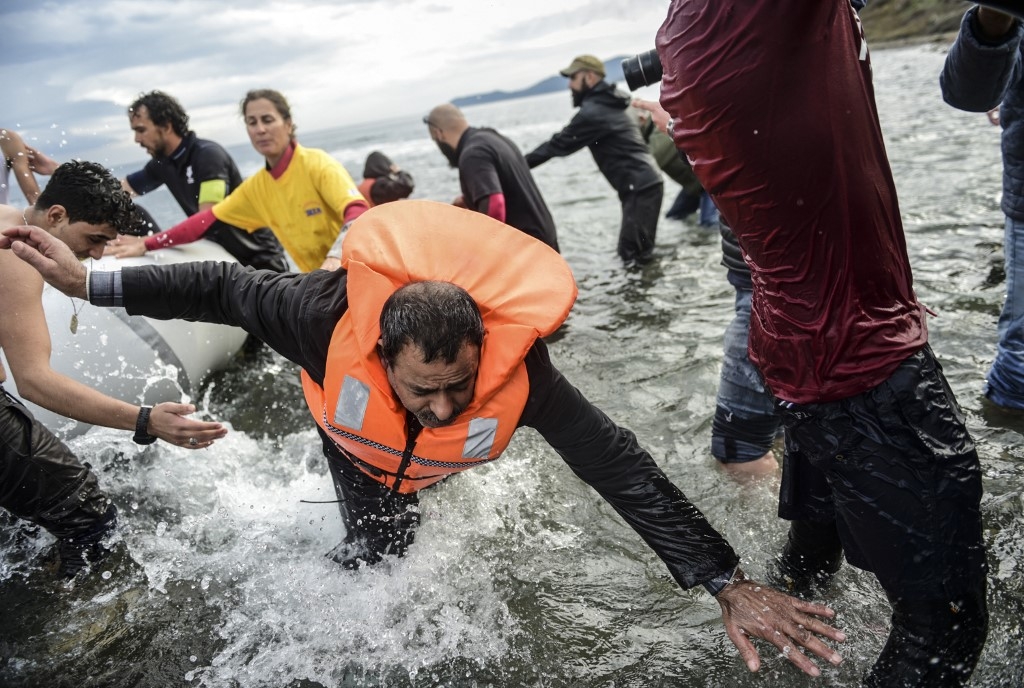
While the case of Palestinians in Syria is often forgotten in debates about refugee crises, their journeys of dispossession offer an opportunity to reflect on Europe’s border regime, the violence of Syria’s war and the permanence of Israeli settler-colonialism.
Late last year, news emerged that a boat from Turkey heading towards Italy sank in the Aegean Sea near the Greek coast, killing 18 people. I was shocked to hear from my former manager that a young woman, Rawnd Alayde, had been on board and was among the eight Palestinians from Syria confirmed dead.
'Authorities could have saved her life had they granted her the right to reunite with us'
- father of Palestinian refugee Rawnd Alayde
After being denied a family reunification application because she had turned 18, Rawnd had been trying to reach her parents and four siblings in Germany. In 2017, a colleague and I had visited Rawnd’s temporary home in Jordan as part of a report we were preparing for a Palestinian civil society organisation, aiming to raise awareness about her family’s predicament.
Around half a million Palestinian refugees lived in Syria prior to the 2011 uprising and ensuing war. After the 1948 ethnic cleansing of Palestine that led to the establishment of the state of Israel, 100,000 Palestinians had fled to Syria and were generally integrated into the working class. When Rawnd’s home in Yarmouk, a Damascus camp that hosted the largest Palestinian community in the country, was destroyed by a Syrian army air strike, she fled with her mother and sisters to Jordan.
Unable to join them, her father, Mohammed, remained in Yarmouk. Throughout the Syrian war, Mohammed worked as an ambulance driver for the Syrian branch of the Palestine Red Crescent Society. When I interviewed him in 2017, he recalled harrowing stories from the conflict: starvation became a weapon of war after the Syrian regime imposed a siege on Yarmouk while it was fighting armed groups, including the Islamic State (IS). On the verge of starvation, Mohammed had lost 50 kilogrammes and had resorted to eating grass.
New MEE newsletter: Jerusalem Dispatch
Sign up to get the latest insights and analysis on Israel-Palestine, alongside Turkey Unpacked and other MEE newsletters
'It's a catastrophe'
Fearing he would be targeted by IS because of his social work in the camp, Mohammed fled Yarmouk and tried to reach Turkey. But en route, he says he was detained and tortured in Idlib by members of the Free Syrian Army, who accused him of being a member of IS.
Even after Mohammed finally reached Germany and claimed asylum, the ordeal was far from over. The rest of his family was in Jordan, awaiting the family reunification process. Mohammed dreaded the fate of his eldest daughter, Rawnd: “I can’t sleep, I can’t eat because I am so scared that Germany won’t include her in my request for family reunification. And if they don’t, then it’s a catastrophe,” he told me back in 2017.
In December 2021, his worst fears materialised. When Mohammed applied for family reunification, Rawnd was within the accepted age range, but by the time it was approved, she had turned 18 - and thus, she was excluded from the process, preventing her from travelling to Germany with her mother and siblings.
After years of living alone in a foreign country, Rawnd desperately wanted to reunite with her family, which ultimately led her to risk the boat journey. Upon learning of his daughter’s fate, Mohammed said: “I woke up to the heartbreaking news that my daughter breathed her last at sea. I wish I could have hugged her so tight. Authorities could have saved her life had they granted her the right to reunite with us.”
Germany’s family reunification procedure and its exclusion of those over 18, a policy common in Europe, is partly to blame for Rawnd’s death. Such policies should be abolished.
Adding insult to injury, Greek authorities charged three Syrian refugees who agreed to steer the boat. While smugglers would usually drive such boats in the past, Europe’s increased militarisation of borders and criminalisation of migration has led to this task shifting to vulnerable refugees. In this case, the three men were each reportedly sentenced to more than 100 years in prison - a cruel measure that has little to do with achieving justice.
Closed borders
While after 2011, Syria’s neighbouring countries bore the brunt of the refugee crisis, the borders to Palestine, under Israeli settler-colonial rule, remained closed. Drawing on the work of historians Johnny Mansour and Ilan Pappe, we can hypothesise on what might have happened had Israel allowed the Palestinian community within its borders to absorb the Palestinian refugees fleeing Syria.
As they suggest, the absorption “would be not only of people from [the] same national, ethnic, religious or cultural background, but in many cases of close relatives”. Yet, Israel opposes accepting refugees from Syria, let alone Palestinian returnees.
The global response to Russia’s invasion of Ukraine and the ensuing refugee crisis has shed further light on how race informs the attitudes of western states towards non-white refugees. The stark differences between the open-arms approach towards white Ukrainian refugees, who western liberal democracies deem “more like us”, and the restrictive policies for refugees often coming from formerly colonised states highlights this racist logic.
Meanwhile, Israel recently invited Jewish Ukrainian refugees to obtain citizenship and become settlers on lands taken from Palestinians - even as more than five million Palestinian refugees continue to be denied a right to return to their homeland, amid Israeli fears of a demographic shift.
It’s also crucial to reflect here on Europe’s restrictive policies towards refugees. Despite Europe’s vast wealth, it takes in only a fraction of the world’s refugees. And this wealth was accumulated primarily from extraction in colonised territories; as Frantz Fanon famously wrote: “Europe is literally the creation of the Third World.” Arguments that depict refugees as “stealing” the benefits of the liberal welfare state deny this history of European imperial expansion.
While focusing on the case of Britain, academic Nadine El-Enany argues that irregular migration to reclaim the spoils of empire is a form of anti-colonial resistance. Many European states also continue to profit from the global arms trade, fuelling the very wars that produce refugee crises.
Rawnd was just one among many who continue to perish on the “death boats” crossing the Mediterranean Sea. Rather than appealing to a liberal benevolence for vulnerable refugees, we must centre questions of reparative justice for the colonial past still haunting our present.
The views expressed in this article belong to the author and do not necessarily reflect the editorial policy of Middle East Eye.
Middle East Eye delivers independent and unrivalled coverage and analysis of the Middle East, North Africa and beyond. To learn more about republishing this content and the associated fees, please fill out this form. More about MEE can be found here.



